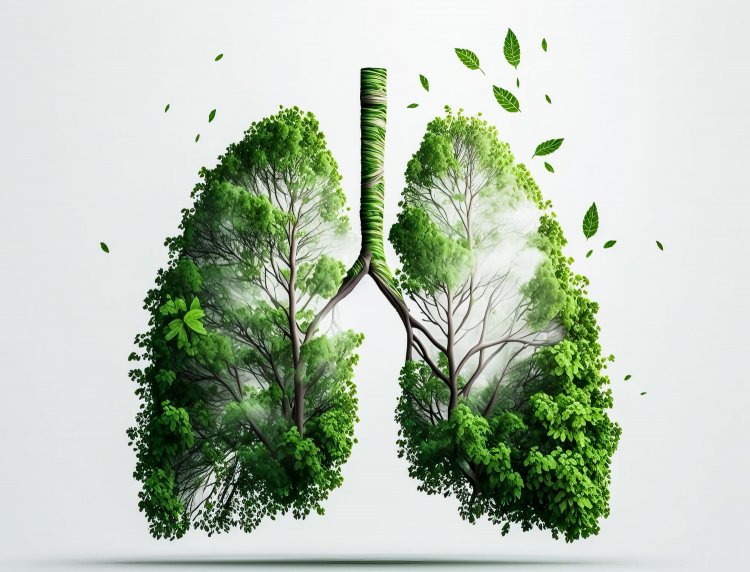Legionnaires' Disease: From Legionella to Lungs - A Deep Dive
Legionnaires' disease, a formidable respiratory infection caused by Legionella bacteria, continues to intrigue medical professionals worldwide. This exhaustive review endeavors to dissect every facet of Legionnaires' disease, encompassing its etiology, epidemiology, pathogenesis, clinical manifestations, diagnosis, management, and prevention strategies.

Etiology
Legionnaires' disease finds its origins in the Legionella genus, primarily Legionella pneumophila serogroup 1. However, other species like L. micdadei, L. longbeachae, and L. anisa also contribute to human infections. These bacteria colonize diverse aquatic environments, ranging from natural water bodies to human-made systems like cooling towers, hot water tanks, and plumbing fixtures. Legionella's ability to thrive in biofilms and resist disinfection poses significant challenges in eradicating the pathogen from water sources.
Epidemiology
The epidemiology of Legionnaires' disease reflects its ubiquitous presence and potential for sporadic cases and outbreaks. The disease demonstrates a global distribution, with outbreaks often associated with contaminated water sources in various settings, including healthcare facilities, hotels, cruise ships, and residential complexes. Risk factors for infection encompass a broad spectrum, including advanced age, male gender, smoking, chronic lung disease, immunosuppression, and certain comorbidities.
Pathogenesis
The pathogenesis of Legionnaires' disease unfolds through a series of intricate steps involving bacterial colonization, host-pathogen interactions, and immune responses. Inhalation of aerosolized droplets containing Legionella facilitates bacterial entry into the alveoli, where they invade alveolar macrophages and replicate intracellularly. The ensuing inflammatory cascade, characterized by cytokine release, neutrophil recruitment, and tissue damage, culminates in pneumonia with diverse clinical presentations, ranging from mild respiratory symptoms to severe pneumonia and multiorgan dysfunction.
Clinical Manifestations
Legionnaires' disease presents a myriad of clinical manifestations, often challenging clinicians in its diagnosis and management. The classic triad of fever, cough, and dyspnea serves as a hallmark, accompanied by additional symptoms such as rigors, pleuritic chest pain, myalgias, headaches, confusion, and gastrointestinal disturbances. The disease's protean nature necessitates a high index of suspicion, particularly in patients with risk factors or exposure to contaminated water sources.
Diagnosis
Accurate diagnosis of Legionnaires' disease hinges on a comprehensive approach integrating clinical evaluation, laboratory testing, and radiographic imaging. Urinary antigen testing for Legionella pneumophila serogroup 1 stands as a cornerstone in rapid diagnosis, offering high sensitivity and specificity. Microbiological cultures of respiratory secretions and serological assays provide supplemental diagnostic information, albeit with longer turnaround times. Radiographic findings typically include unilateral or bilateral pulmonary infiltrates, consolidation, and occasionally cavitation.
Management
The management of Legionnaires' disease necessitates a judicious balance between antimicrobial therapy and supportive care. Prompt initiation of empiric antibiotics targeting Legionella, such as macrolides, respiratory fluoroquinolones, or tetracyclines, forms the cornerstone of treatment. In critically ill patients or those with severe disease, intravenous antibiotics and adjunctive therapies like oxygen supplementation, fluid resuscitation, and mechanical ventilation may be required to mitigate complications and improve outcomes.
Prognosis and Complications
The prognosis of Legionnaires' disease varies depending on the disease severity, timely initiation of appropriate therapy, and patient-specific factors. While most patients experience clinical improvement within days of antibiotic therapy, severe cases may progress to respiratory failure, septic shock, acute kidney injury, and multiorgan dysfunction syndrome. Mortality rates range from 5% to 30% in hospitalized patients, with advanced age, immunosuppression, and delays in treatment initiation contributing to poorer outcomes.
Prevention
Preventing Legionnaires' disease necessitates a multifaceted approach encompassing environmental control measures, water management strategies, and public health interventions. Routine maintenance and disinfection of water systems, along with monitoring and regulation of water temperatures, play pivotal roles in minimizing Legionella colonization and transmission. Enhanced surveillance, outbreak detection, and public education initiatives further augment prevention efforts, safeguarding vulnerable populations and mitigating the risk of outbreaks.
Legionnaires' disease emerges as a multifaceted entity, demanding meticulous attention to its diverse facets for effective management and prevention. This comprehensive exploration sheds light on the intricacies of Legionnaires' disease, empowering healthcare professionals, public health officials, and policymakers to navigate the complexities of diagnosis, treatment, and prevention strategies. Continued research endeavors aimed at unraveling the pathogenesis, optimizing diagnostic modalities, and refining therapeutic interventions are paramount in combating this formidable respiratory pathogen and safeguarding public health.
#LegionnairesDisease #Etiology #Epidemiology #Pathogenesis #ClinicalManifestations #Diagnosis #Management #Prognosis #Complications #Prevention #PublicHealth #Healthcare #InfectiousDisease #RespiratoryPathogen
Disclaimer:
The information provided in this article is for educational purposes only and should not be considered medical advice. If you have any health concerns or are experiencing symptoms, it is important to consult with a healthcare professional, such as a doctor or clinic, for proper diagnosis and treatment. Always seek the advice of your doctor or other qualified health provider with any questions you may have regarding a medical condition. Do not disregard professional medical advice or delay in seeking it because of something you have read in this article.
What's Your Reaction?





















